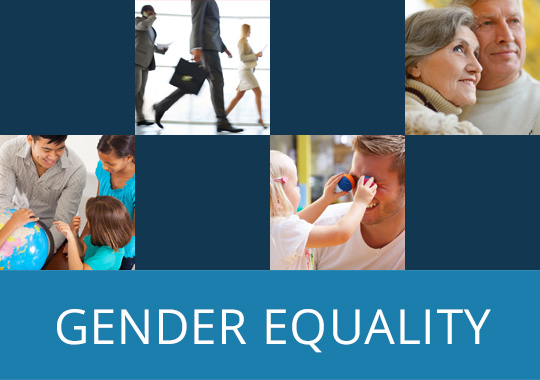Advancing Gender Equality: The role and situation for gender equality mechanisms in the context of COVID-19
On-line High-Level Seminar
21 October 2020, 2.30-5.30 pm (CET)
 Seminar's video recording
Seminar's video recording
The interpretation of meetings serves to facilitate communication and does not constitute an authentic record of the proceedings. Only the original speech is authentic. No liability shall be incurred by the interpreter in the exercise of his/her function



Session 1: Institutional mechanisms for gender equality: state of play and impact of the COVID-19 pandemic
- Indicators for institutional mechanisms and gender mainstreaming, Barbara Limanowska, Gender Mainstreaming Programme Co-ordinator, European Institute of Gender Equality
Session 2: Ensuring that recovery measures reinforce gender equality-related bodies and services
- Violence against women: measures taken during the COVID-19 confinement period – the Greek experience, Maria Syrengela, Secretary General for Family Policy & Gender Equality, Greece
- Linking economic recovery plans with supporting gender equality bodies and services, Janet Veitch, Chair, Women’s Budget Group, United Kingdom
- Voices of gender equality mechanisms on COVID-19, Alia El-Yassir, Regional Director, UN Women Regional Office for Europe and Central Asia
- Strengthening support services for victims of violence against women, Maria-Andriani Kostopoulou, member of the Group of Experts on Action against Violence against Women and Domestic Violence (GREVIO)
- Taking into account the needs of women with disabilities, Ana Maria Peláez Narváez, UN CEDAW Committee member, European Disability Forum Vice-President, Executive Vice-President of CERMI Women’s Foundation, Spain.
Institutional mechanisms for the advancement of women and of gender equality are central to support public policies in this area and to ensure sustainable progress. For many years, the Council of Europe has been promoting and implementing a double approach to gender equality involving, on the one hand, specific policies and measures to promote gender equality, and on the other, a gender mainstreaming strategy.
At the level of member states, the institutional arrangements, available resources and power of gender equality mechanisms vary. The 2020 Beijing+25 Review Report, prepared by the European Institute for Gender Equality (EIGE), indicates that in European Union countries, the status of governmental structures in charge of gender equality has declined between 2012 and 2018, and that gender mainstreaming efforts have also reduced during this period. The Istanbul Convention provides a cohesive legal framework for preventing and combating violence against women and domestic violence, including regarding the necessary institutional arrangements in States Parties.
The COVID-19 pandemic has shed a new light on the need for a strong gender equality perspective in all policies, accompanied by appropriate resources, in order to mitigate the gendered impact of the crisis, including a focus on combating gender-based and domestic violence.
The seminar will:
- examine the gendered consequences of the COVID-19 pandemic and the role of institutional mechanisms to limit the negative consequences of this crisis;
- look at promising practices at the national and international levels, and by civil society;
- provide a platform to discuss solutions to strengthen institutional mechanisms and gender mainstreaming.



